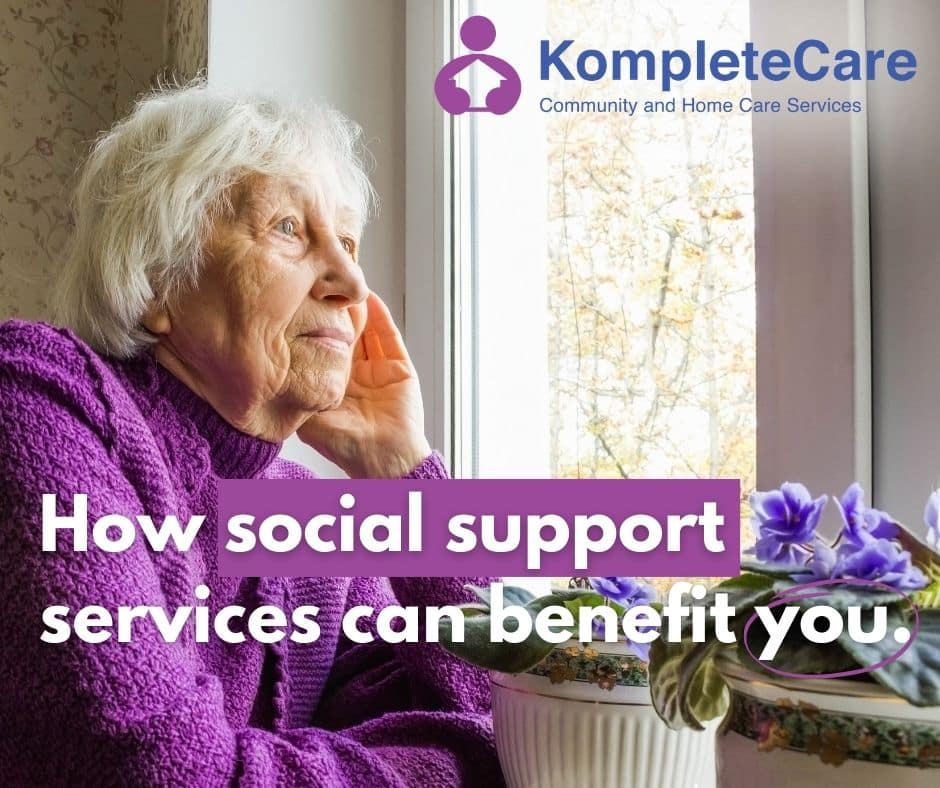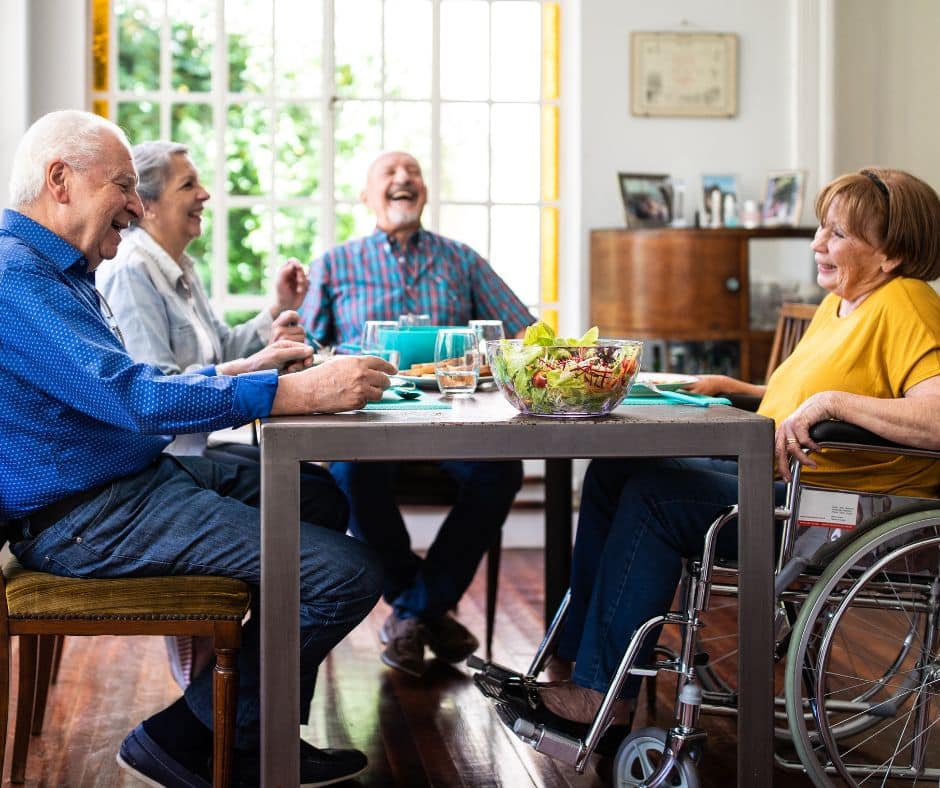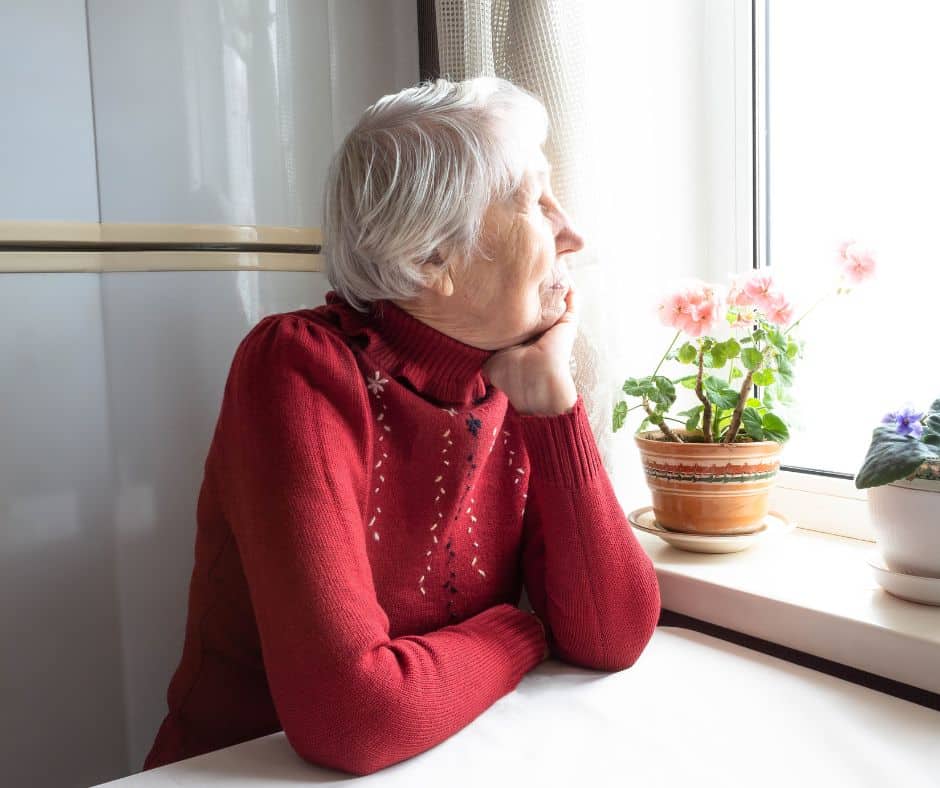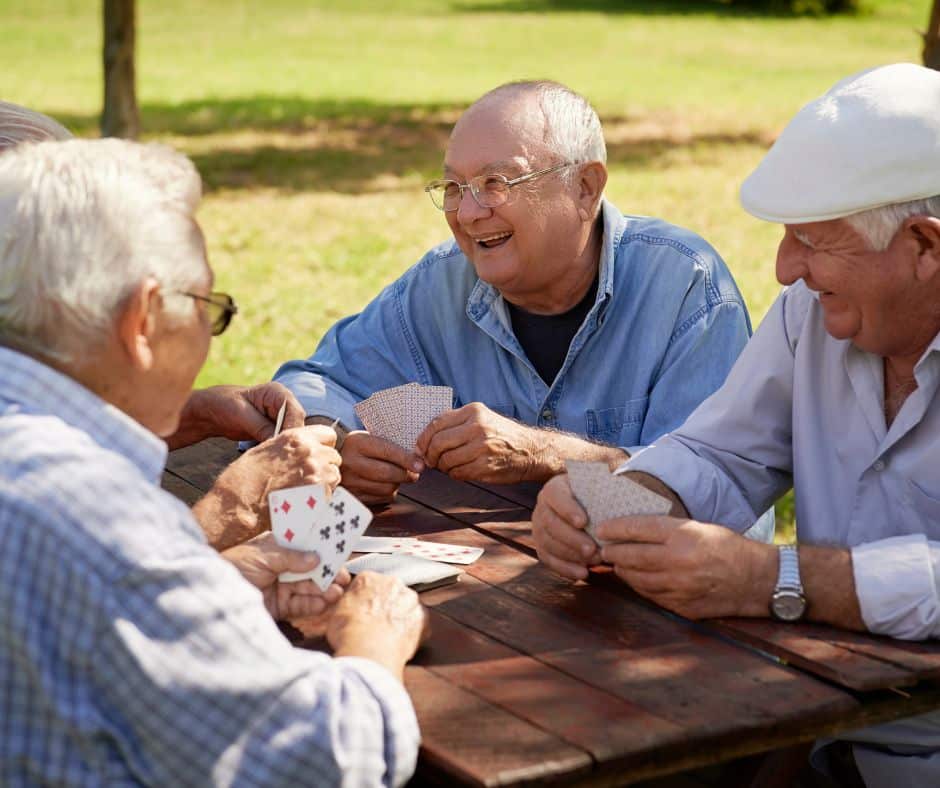Maintaining a social life and staying connected play crucial roles in our physical and mental well-being, even more so as we age. As we get older, we experience many changes that impact our lives. Many factors can impact our ability to maintain social connections, especially for those who are elderly or living with a disability.
Those who live alone, have lost a loved one, are suffering from a chronic illness, are experiencing hearing loss, are living with mobility issues or have challenges finding transportation are at a higher risk of being socially isolated. Whatever your circumstances, social support services are a great way to stay connected with your community, help prevent isolation and benefit your health.
Why are Social Support services needed?
Over recent years, lingering impacts of the COVID-19 pandemic have led to a large number of our population experiencing isolation, particularly the elderly and vulnerable. 1 in 5 older Australians and a third of those living in residential care are socially isolated. Social isolation can have serious effects on mental and physical health. It can lead to a higher risk of high blood pressure, heart disease, obesity, a weakened immune system, anxiety, depression and cognitive decline. Socialising and social support services can help prevent isolation in several ways.
Social Support can help you stay active.
Physical activity is a key component of healthy aging. Staying active can help you stay physically and mentally fit and reduce your risk of health conditions like high blood pressure, high cholesterol, type 2 diabetes, heart disease, and obesity. It can also help improve your thinking, learning, and judgement skills as you age, reduce the risk of anxiety and depression, and improve your sleep.
Social support can help encourage physical activity through encouragement and companionship. Those who socialise with members outside of their immediate family are more likely to exercise. A study has shown that older adults over the age of 60 were more than twice as likely to remain active and reach physical activity guidelines when they had company.
Social Support can help you maintain your mental health.
Humans are naturally social creatures, and our relationships and support networks can significantly impact our well-being. Those who are isolated are more likely to suffer from mental health issues and stress, which can lead to more serious issues like depression, anxiety, heart complications and gastrointestinal issues.
Those who are social are less likely to experience isolation and have better mental health as a result. Socialising decreases anxiety and helps us to have more confidence in our ability to cope during difficult times, stress, anxiety and depression. Studies have shown that older adults who live socially active lives are generally happier and have higher satisfaction in their lives.
Social Support can help ease the pain of loneliness and grief.
The grief of losing a loved one can be painful and overwhelming. Everyone grieves in different ways, and it is not uncommon to feel lonely as a result, especially after losing someone close. While you might not feel like socialising immediately, companionship can help you get through your grief.
Emotional support and someone to talk to when you feel lonely or sad can benefit your healing. Talking through your grief and sharing your favourite memories and stories about your loved one can help you cope.
Social Support can help prevent cognitive decline.
Social support and interaction can help improve the brain’s ability to form and recall memories and protect it from cognitive decline. Frequent social contact helps to exercise cognitive skills in the brain, like memory and language, which research suggests can help people cope with changes in their brain as they age and even delay symptoms of dementia.
Socialising with others can also motivate people to continue learning new skills and keep the brain active. Participating in activities often requires concentration and focus, which can help improve working memory.
How can you access Social Support?
Social Support doesn’t need to be complicated; it can be as simple as having a KompleteCare Support Worker over for a cup of tea and a chat or someone to accompany you to social activities. You might even consider a Day Options program such as KC Community, where you can interact and get involved in your local community with people your age. Whatever you choose, KompleteCare is here to help. KC Community operates weekly from Tuesday to Friday in 9-week terms, with morning sessions for our Home Care Package participants and afternoon sessions for our NDIS participants. To learn more, call us at (08) 8265 5696 or fill out an enquiry form online.











